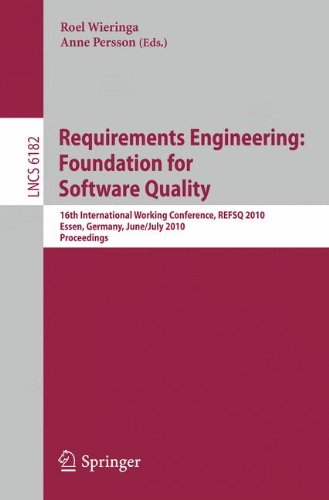

Most ebook files are in PDF format, so you can easily read them using various software such as Foxit Reader or directly on the Google Chrome browser.
Some ebook files are released by publishers in other formats such as .awz, .mobi, .epub, .fb2, etc. You may need to install specific software to read these formats on mobile/PC, such as Calibre.
Please read the tutorial at this link: https://ebookbell.com/faq
We offer FREE conversion to the popular formats you request; however, this may take some time. Therefore, right after payment, please email us, and we will try to provide the service as quickly as possible.
For some exceptional file formats or broken links (if any), please refrain from opening any disputes. Instead, email us first, and we will try to assist within a maximum of 6 hours.
EbookBell Team

4.1
90 reviewsThis volume compiles the papers accepted for presentation at the 16thWorking C- ference on Requirements Engineering: Foundation for Software Quality (REFSQ 2010), held in Essen during June 30 and July 1-2, 2010. Since 1994, when the first REFSQ took place, requirements engineering (RE) has never ceased to be a dominant factor influencing the quality of software, systems and services. Initially started as a workshop, the REFSQ working conference series has now established itself as one of the leading international forums to discuss RE in its (many) relations to quality. It seeks reports of novel ideas and techniques that enhance the quality of RE products and processes, as well as reflections on current research and industrial RE practices. One of the most appreciated characteristics of REFSQ is that of being a highly interactive and structured event. REFSQ 2010 was no exception to this tradition. In all, we received a healthy 57 submissions. After all submissions had been ca- fully assessed by three independent reviewers and went through electronic disc- sions, the Program Committee met and finally selected 15 top-quality full papers (13 research papers and 2 experience reports) and 7 short papers, resulting in an acc- tance rate of 38 %. The work presented at REFSQ 2009 continues to have a strong anchoring in pr- tice with empirical investigations spanning over a wide range of application domains.